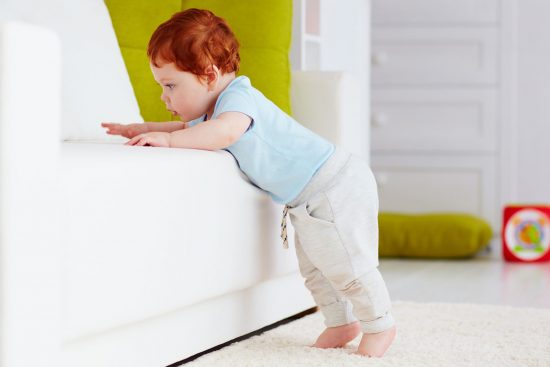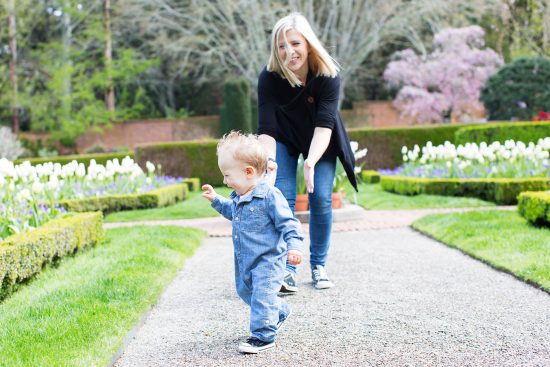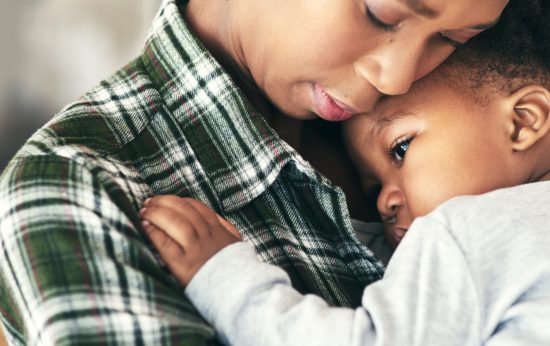Ever wondered when young children understand risks and why? Here we discuss when we begin to identify danger and how to help children understand risk.

It’s safe to say our ability to detect threats is a vital survival mechanism. But how much of this is a learnt behaviour (‘sweetie, put the scissors down please’)? And how much of it is instinctive? Here we look at some of the ways babies and infants understand danger.
Research shows that we might find some things scary from birth. Infants spend more time paying attention to ‘threat-relevant’ stimulus like snakes and spiders than things that are not as risky. In two experiments, infants aged eight to 14 months responded more quickly to snakes than they did to flowers.
Babies look for longer at faces showing fear than those showing happiness
If we’re scared, we’ll make a different face than if we’re happy.
It turns out that showing fear is a great way to let the kids know there might be something wrong. Researchers found that by seven months, babies look for longer at faces that show fear than those showing happiness. But fear isn’t the only emotion that keeps babies fixated.
From four months old, babies spend a longer time looking at angry faces than at happy ones. It looks like we’re hard-wired to respond to faces that are showing negative emotions.
This research appears to show we focus on threat from an early age and it’s connected with our brain development, not only what we’re taught. What we pay attention to (and for how long) may also shape how we respond to different experiences. Studies suggest this could be useful in helping us understand and frame our world.
We’ve already talked about common fears, like fears of spiders and snakes. Here we look at some other scary subjects and find out why they’re so frightening…
Fear of everything
For newborn babies, everything unfamiliar can be scary. You’ve just spent the best part of a year in your own private apartment with nourishment on tap. Then suddenly you’re born and it’s bright, it’s loud, it’s hot, it’s cold. You also have lots of weird things to see, hear, smell and touch. Talk about intense. No wonder babies cry so much.
Fear of strangers
A fear of strangers is a normal developmental phase in children from six months to three years old. You can read more about this in our article about separation anxiety.
Fear of heights
Where does our fear of heights come from?
Research has shown that babies develop this fear only after they have started moving themselves around. Once they realise that not being able to see something means it could be an edge they might fall off, they develop a wariness of edges.
We all have our own tolerance to risk. Some of us live in city centres. Some of us anti-bac our hands after stroking a dog. Some of us drive to work every day. Some of us are BASE jumpers.
There’s no rulebook on teaching our little ones which risks are acceptable.
Parents tell us that how they approach risk with their kids is affected by what they see as risky…
“I find it really hard when I see other mums protecting their kids from dogs, even if they’re super-placid. I grew up with dogs and I’ve always let Ceri approach and stroke any dog I think is well trained. It’s all about your personal experience.” Maeve, mum to Ceri, nine months
There’s no rulebook on teaching our little ones which risks are acceptable. But they will want to explore the world, so you’ll probably be fishing things out of their mouths and rugby tackling them away from the fire. From ovens to swings to a dodgy kerbstone, the world can look like a dangerous place.
Every parent needs to balance keeping their child safe with letting them grow, develop and explore.

For example, many parents wouldn’t let their toddler climb the stairs if they’re in another room. But if you’re stood directly behind them, ready to catch a misplaced step, then you might feel confident they’ll be OK.
“We taught Kitty ‘Hot!’ from about 12 months. We’d point at the oven, or a radiator, or the fire and make a painful expression and go ‘Oooh, hot, ow!’ and it seems to have stuck. I just hope she doesn’t grow up being scared of radiators.” Bevis, dad to Kitty, 14 months
Is your toddler desperate to climb up the steps to the little playground slide? Chances are the slide is designed for toddlers and the ground is soft. You’ll also be close by to intervene, so the likelihood of a major accident is probably pretty low.
Feeling confident that you’re doing the right thing can be tough so trust your instincts. They’re cleverer than you might think.
It’s always better to show or tell a child what they should do, rather than what not to do. For example, you might say: ‘One hand on the buggy’ or ‘Stay on the pavement’. You could ask your parent friends what positive framing they use.
You can bring even young children into the conversation. For example, when your child wants to go on the climbing frame, you might say, ‘Ok great, what are you going to do to make sure you don’t fall off?’
While fear has its place in understanding risk and highlighting danger, fear may sometimes seem illogical.

Some children develop a fear of non-threatening objects and situations because of how they experience them. For example, some children develop a fear of noisy objects like hand dryers and vacuum cleaners, and react as though these things are a personal threat.
Most children overcome these fears as they get older. They develop a greater understanding of the difference between perceived threat and actual threat. However, for some children a strong reaction doesn’t go away. For a few children, this can be one of a number of signs of autism or ASD.
Sometimes, distraction will help take a child’s mind away from focussing on an imminent event such as going somewhere new. But the NHS says that talking and showing understanding of feelings is important, followed by working together to develop coping strategies.
Showing empathy and understanding will allow your child to come to you for support. If you feel worried about your child’s levels of anxiety, talk to their health visitor or GP for more support.
Our support line offers practical and emotional support with feeding your baby and general enquiries for parents, members and volunteers: 0300 330 0700.
You might find attending one of NCT’s Early Days groups helpful as they give you the opportunity to explore different approaches to important parenting issues with a qualified group leader and other new parents in your area.
Make friends with other parents-to-be and new parents in your local area for support and friendship by seeing what NCT activities are happening nearby.
For more information about emotional and social development in babies and young children, you can see our articles here. They include articles such as How and when do babies develop social skills? and Li’l willpower: do babies have self-control and how does it develop?
You could also see our articles about how to deal with tricky toddler behaviour.